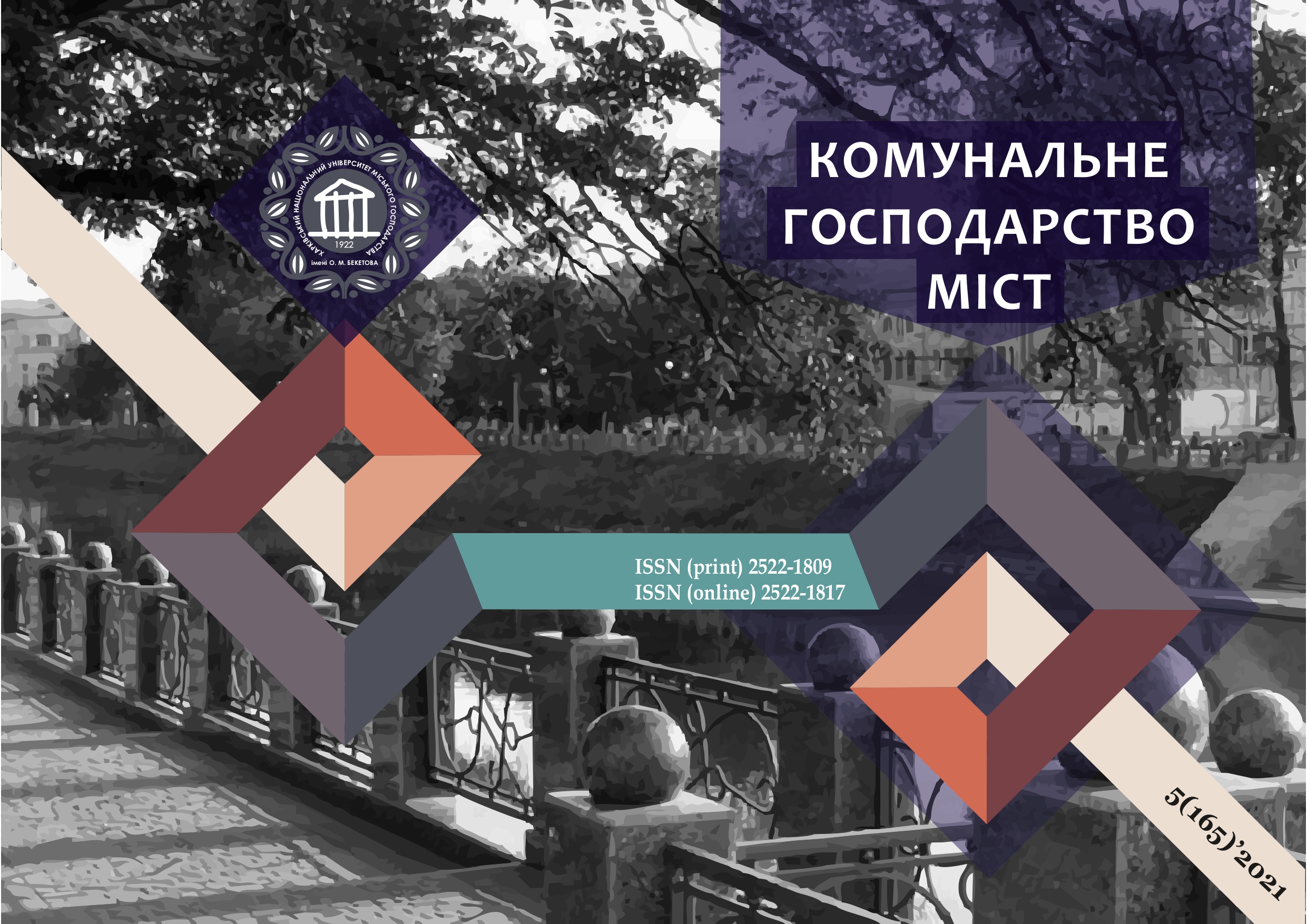MODERN ORGANIZATIONAL ASPECTS OF THE TRANSFORMATION OF EDUCATIONAL ACTIVITIES
Array
Keywords:
educational activity, institute, university, human capital, information technologies, legislative base.Abstract
It is established that in modern conditions there is an increase in the importance of human capital to address issues in the economy. In recent years, a new paradigm of development has been formed, which provides for the creation of a systemic environment of intellectual and innovative economy. In such conditions there is a need to rethink approaches to the implementation of the educational process, the formation of organizational structures. The aim of the work is to determine the modern organizational aspects of the transformation of educational activities, taking into account the changes taking place in Ukraine. To achieve this goal, the following tasks were solved: to characterize the transformation of the organizational structure of educational activities; identify areas for transformation of the organizational structure of educational activities.
To ensure educational activities is important to form an effective organizational structure. In this context, it should be noted the directions of its transformation in terms of creating institutions in the structure of universities. In particular, considering the training of specialists in construction and civil engineering, it is noted that the main purpose of the Institute of Civil and Civil Engineering within the University is the formation and development of scientific and educational capacity in construction and engineering based on modern tools used in the market. construction, civil engineering, ecology, land administration and geographic information systems and technologies, the market of educational services.
The necessity of application of modern information technologies for maintenance of educational activity is defined.
References
2. Valeev, R.G. (2011) Educational law of Ukraine: textbook, 287 [in Ukrainian]
3. Velychko, A.V., Kalko, I.V. (2007) Questions of budget financing of educational institutions. Education of Donbass 5, 75–84 [in Ukrainian]
4. Goncharov, Y., Kasych, A. (2007) Scientific potential as a factor in the development of innovation and investment system of Ukraine. Economy of Ukraine 3, 42–51 [in Ukrainian]
5. Drobnokhod, M. Present and problems of higher education in Ukraine. URL: http://anvsu.org.ua/index.%20files/Zagalni%20zvory.htm Accessed 07 June 2021 [in Ukrainian]
6. Krasnyakov, E. (2011) State educational policy: the essence of the concept, system, historical and political aspects. Viche 20, 21–24 [in Ukrainian]
7. Lomanov, I. (1996). Remuneration of workers in science, higher education, health and education. Conceptual bases of its differentiation. Ukraine: aspects of labor 2, 40–45 [in Ukrainian]
8. Nesterenko, P.V. (2010). Perspective changes in the legal regulation of higher education institutions in connection with the accession of Ukraine to the Bologna process. Bulletin of Taras Shevchenko National University of Kyiv. Philosophy. Political science 94/96, 116–119 [in Ukrainian]
9. Pshenichna, L.V. (2009) Development of public administration of higher education in Ukraine: problems of adaptation to the conditions of the Bologna process. Public Administration: Theory and Practice 2 (25), 82–88 [in Ukrainian]
10. Constitution of Ukraine. № 254k / 96-BP. Edited from 01.01.2020. URL: https://zakon.rada.gov.ua/laws/show/конституція%20україни#Text Accessed 08 June 2021 [in Ukrainian]
11. About Education: Law of Ukraine № 2145-VIII. Editorial from 24.06.2020. URL: https://zakon.rada.gov.ua/Laws/show/2145-19#text Accessed 08 June 2021 [in Ukrainian]
12. About higher education: Law of Ukraine № 1556-VII. Edited from 25.09.2020. URL: https://zakon.rada.gov.ua/laws/show/1556-18#Text Accessed 08 June 2021 [in Ukrainian]
13. On the Consular Statute: Decree of the President of Ukraine № 127/94. Edited on May 21, 2002. URL: https://zakon.rada.gov.ua/laws/show/127/94#Text Accessed 08 June 2021 [in Ukrainian]
14. Issues of the National Information Center for Academic Mobility: Resolution of the Cabinet of Ministers of Ukraine № 924-2011-n. Adoption from 31.08.2011. URL: https://zakon.rada.gov.ua/laws/show/924-2011-p#Text Ac-cessed 08 June 2021 [in Ukrainian]
15. Convention on the Recognition of Qualifications concerning Higher Education in the European Region (Lisbon, 11 April 1997), ratified by the Law of Ukraine «On Ratification of the Convention on the Recognition of Qualifications concerning Higher Education in the European Region» of 03.12.1999 № 1273-XIV. URL: https://zakon.rada.gov.ua/laws/show/994_308 Accessed 08 June 2021 [in Ukrainian]
16. Convention on the Recognition of Courses, Diplomas of Higher Education and Degrees in the States of the European Region (Paris, December 21, 1979), ratified by the Decree of the Presidium of the Verkhovna Rada of the Ukrainian SSR «On Ratification of the Convention in the countries of the region of Europe» from 11.01.82 № 2993-X. URL: https://zakon.rada.gov.ua/laws/show/995_261#Text Accessed 08 June 2021 [in Ukrainian]
17. Convention abolishing the requirement of legalization of foreign official documents (The Hague, October 5, 1961). Accession of Ukraine in accordance with the Law of Ukraine «On Accession of Ukraine to the Convention Abolishing the Requirement of Legalization of Foreign Official Documents» of January 10, 2002 № 2933-III. URL: https://zakon.rada.gov.ua/laws/show/995_082#Text Accessed 08 June 2021 [in Ukrainian]
Downloads
Published
How to Cite
Issue
Section
License
The authors who publish in this collection agree with the following terms:
• The authors reserve the right to authorship of their work and give the magazine the right to first publish this work under the terms of license CC BY-NC-ND 4.0 (with the Designation of Authorship - Non-Commercial - Without Derivatives 4.0 International), which allows others to freely distribute the published work with a mandatory reference to the authors of the original work and the first publication of the work in this magazine.
• Authors have the right to make independent extra-exclusive work agreements in the form in which they were published by this magazine (for example, posting work in an electronic repository of an institution or publishing as part of a monograph), provided that the link to the first publication of the work in this journal is maintained. .
• Journal policy allows and encourages the publication of manuscripts on the Internet (for example, in institutions' repositories or on personal websites), both before the publication of this manuscript and during its editorial work, as it contributes to the emergence of productive scientific discussion and positively affects the efficiency and dynamics of the citation of the published work (see The Effect of Open Access).

